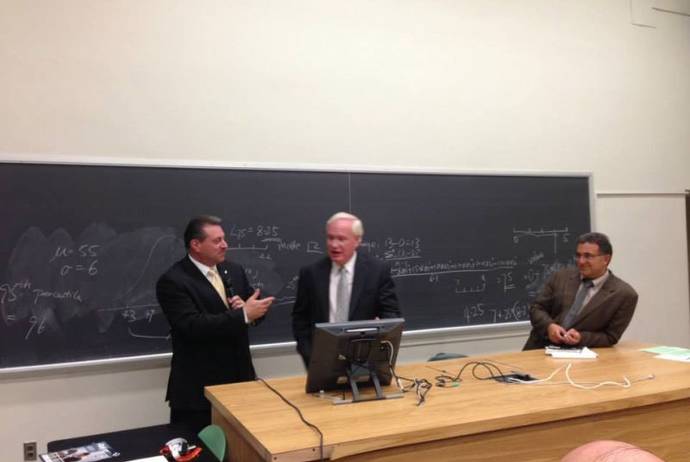If Bill de Blasio becomes mayor of New York, he will become the fourth U.S. American of Italian descent to take on the leadership of the country’s largest city. But there’s a big difference between de Blasio and his predecessors.
For Fiorello LaGuardia, Vincent Impellitieri, and less so for Rudy Giuliani, the Italian American vote mattered and was courted. This is to not say that Italian Americans didn’t cast important votes in the primary election, for they still represent a significant portion of the New York City electorate. What it does say is that the once important Italian American block is no longer a major factor in determining most city races.
That a member of an ethnic group new to New York ran for election has always been news—perhaps not for the larger community, but certainly for the particular group. When one gets elected, it’s history. When two run against each other in an election, what usually gets eliminated is the once important “ethnic factor”. This situation has become the subject of the most recent study of Professor Ottorino Cappelli, a political scientist who teaches at the University of Naples, L’Orientale.
Cappelli has spent the past few years studying New York politics and its Italian Amerian ethnic factor. The study resulted in Italian Signs, American Politics: Current Affairs, Historical Perspectives, Empirical Analyses, published by the John D. Calandra Italian American Institute.
Cappelli found that the ethnic factor changes when Italian Americans run against each other, after all, if a politician argues that one should vote for him/her because he/she is Italian American, then what happens when he/she runs against another Italian American?
Cappelli studied this factor in the 2010 gubernatorial race between Andrew M. Cuomo and Carl P. Paladino, neither of whom could use ethnic identity to take votes from the other. He followed this with analyses of earlier congressional and mayoral elections in New York, and an investigation into the interaction between social demographics and the success of Italian American politicians in districts where intra-Italian American election have occurred. By looking at what he determines to be Italian signs that appear in campaigns, Cappelli concludes that Italian American candidates most move beyond strategies of ethnic identity and succeed only when they are able to appeal to broader segments of the areas they wish to represent.
The book was presented at Queens College on September 25 in a forum that included New York State Senators, Tony Avella and Joseph Addabbo, two living examples of what Cappelli has studied. Both senators have had experiences of running against other Italian Americans in city and state elections, and brought those experiences into a discussion that followed Cappelli’s introduction to his book. Addabbo and Avella enlightened the audience with stories of their personal and professional stories of elections and service to their constituencies. The result was a dynamic presentation and a great example of how the academy can contribute to helping us all better understand the communities we make as traditional notions of ethnic identity shift and shape new ways of perceiving the past, present and futures of New York citizens.
* Fred Gardaphe is Distinguished Professor of English and Italian American Studies at Queens College and the John D. Calandra Italian American Institute (CUNY).
The book's table of contents:
Introduction
By Ottorino Cappelli
I. CURRENT AFFAIRS
Italian-American Politics in New York City. Bird’s and Worm’s Eye Views.
By Jerome Krase
The Inner Circlers. Andrew Cuomo, Carl Paladino, and Their Top Italian-American Aides.
By Ottorino Cappelli
II. HISTORICAL PERSPECTIVES
The 1950 Election. A Classic Intra-Ethnic Struggle.
By Salvatore J. LaGumina
When East Harlem’s Politics Was an Italian–American Matter. The Lanzetta–Marcantonio Congressional Races, 1934–1940.
By Stefano Luconi
III. EMPIRICAL ANALYSES
How Do Italian Americans Vote—and Does it Matter? Testing the ‘Symbolic Rewards Hypothesis’ in the U.S. House of Representatives.
By Rodrigo Praino
Tales of an Italian-American Political Class. Monopolistic Elections and Hegemonic Districts in New York.
By Ottorino Cappelli































